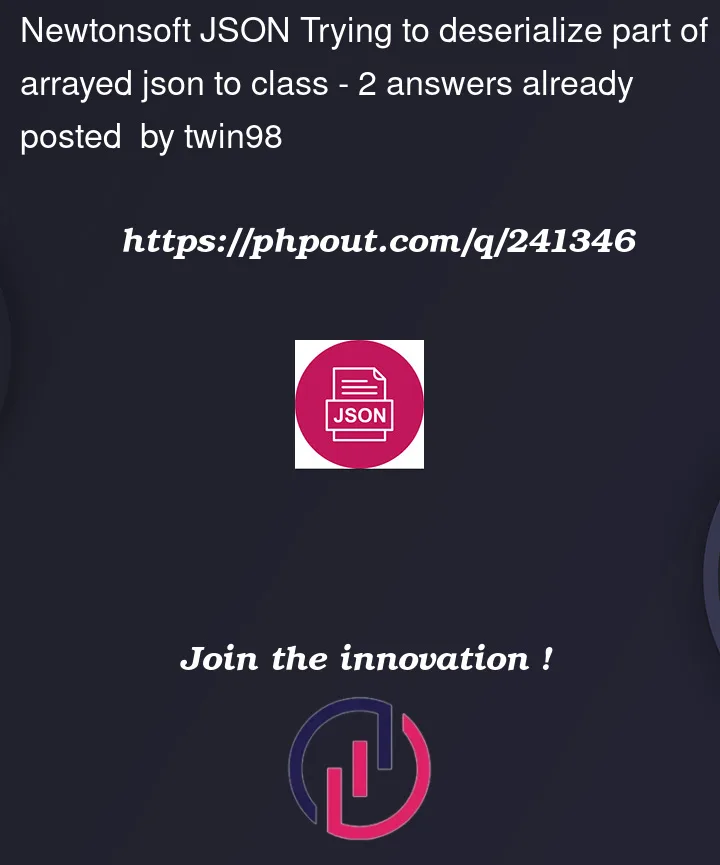Below is the json in a very simplified form (the original contains many more items). I want to add the "acf" content of all items to List
[{
"id": 26,
"date": "2023-08-30T18:36:24",
"date_gmt": "2023-08-30T18:36:24",
"acf": {
"name": "John",
"lastName": "Smith",
"age": "33"
}
}, {
"id": 20,
"date": "2023-06-11T11:17:02",
"date_gmt": "2023-06-11T11:17:02",
"acf": {
"name": "Randy",
"lastName": "Jones ",
"age": "22"
}
},
{
"id": 20,
"date": "2023-06-11T11:17:02",
"date_gmt": "2023-06-11T11:17:02",
"acf": {
"name": "Mark",
"lastName": "Taylor ",
"age": "56"
}
}]
public class Acf
{
public string name { get; set; }
public string lastName { get; set; }
public string age { get; set; }
}
Below is an example of how I tried to solve it. Surely there is a better and simpler way to solve this task. Thank you for your help.
[System.Serializable]
public class Acf
{
public string name { get; set; }
public string lastName { get; set; }
public string age { get; set; }
}
private List<Acf> _acfList = new List<Acf>();
void PrepareAcfData(string json)
{
JArray data = JArray.Parse(json);
for (int i = 0; i < data.Count; i++)
{
Acf newAcf = new Acf();
newAcf.name = data[i]["acf"]["name"].Value<string>();
newAcf.lastName = data[i]["acf"]["lastName"].Value<string>();
newAcf.lastName = data[i]["acf"]["age"].Value<int>();
_acfList.Add(newAcf);
}
}




2
Answers
You could combine
JToken.SelectTokens()using a JSONPath wildcard expression withJToken.ToObject<T>()to simplify your code:You could also use anonymous types to deserialize only selected parts of your JSON:
Notes:
[*]is the JSONPath wildcard operator selecting all items in an array.[*].acf]selects the value of the property"acf"in each array object.ToObject<Acf>()converts each of those to your final model.If your JSON were more complex, say with some outer container object
{"root":[/* The array above*/ ]}, you could add that in as follows:Deserializing directly to anonymous types may be more performant that parsing to an intermediate
JTokenhierarchy.Demo fiddle for SelectTokens here and for anonymous types here.
Just use Linq